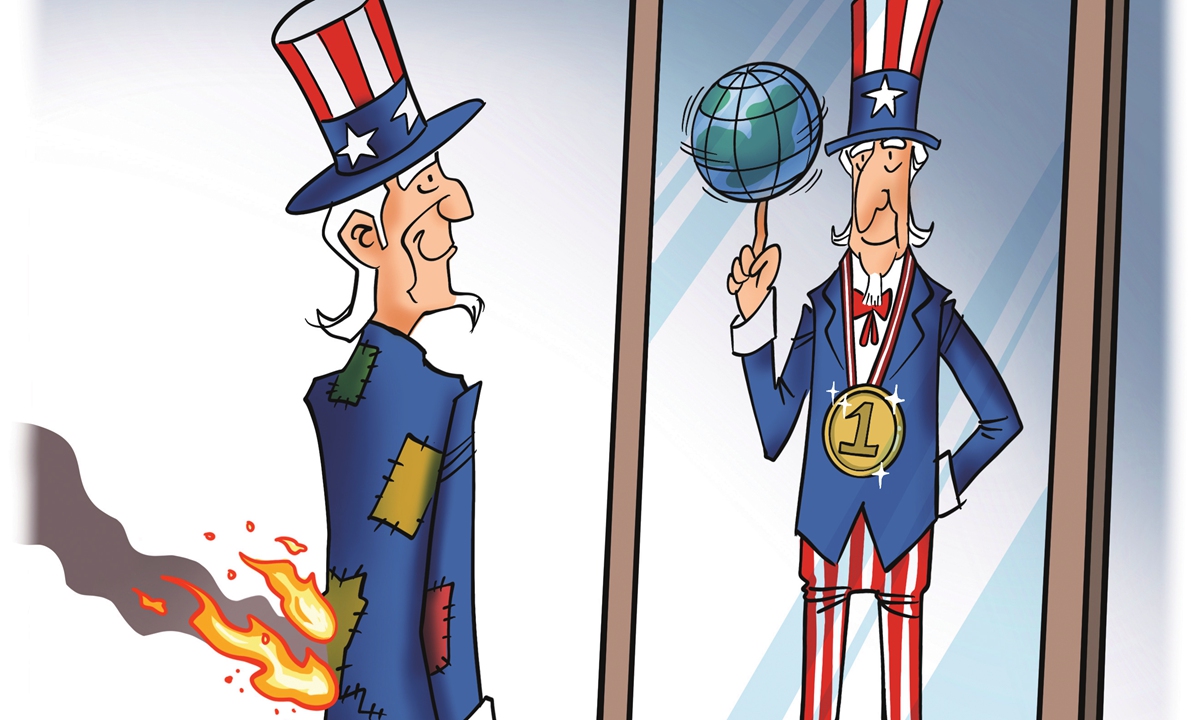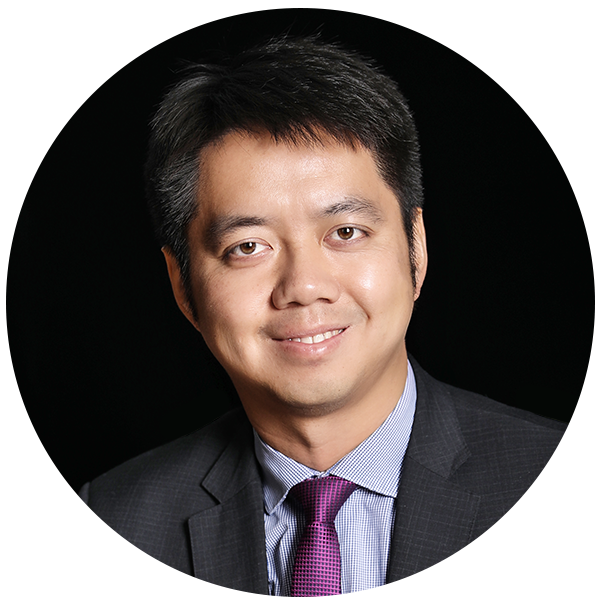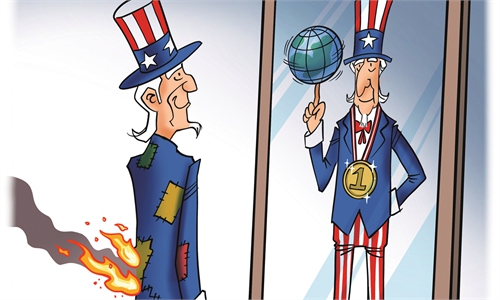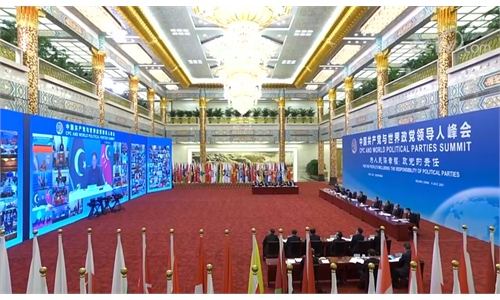Striving for breaking US discourse hegemony

Illustration: Liu Rui/GT
The Chinese think tanks' report - "America Ranked First?!: The Truth about America's fight against COVIID-19" - has been viewed at least 500 million times. The report named the US as the world's No. 1 anti-pandemic failure, No. 1 political-blaming country, No. 1 pandemic spreader, No. 1 politically-divisive country, No. 1 currency-abusing country, No. 1 turbulent country during the pandemic, No. 1 disinformation country and No. 1 country advocating for origin tracing terrorism. It was widely quoted in media reports. Newsweek reached out to the White House on August 9 for a response to the Chinese academic report, but did not hear back in time for publication.As the leading publisher of the report, I hope it will restore the truth regarding the state of the world since 2020. The realities shouldn't be distorted by Bloomberg's COVID Resilience Ranking that put the US at No.1 in June. From this perspective, the Chinese academic report is a push back against Bloomberg's distortion of history rather than a direct criticism of the US.
More important, I hope the report will lead the US to reflect upon its pandemic failures, draw lessons and promote international cooperation to end the pandemic as soon as possible. After all, in the past year and a half, a considerable part of the more than 600,000 COVID-19 deaths in the US could have been avoided.
However, what shocked me most is not the media's response to the academic report, but warnings and worries from my mother. She chastised me for my criticisms against the US. "The US' situation is so bad that it will certainly draw criticisms from someone else; why poke your nose in it?" she asked. She also asked worriedly, "what if the US disapproves and sends a spy to kill you?"
I don't think the US is as evil as my mother thinks. I am just a scholar committing myself to restoring the truth in the world. But my mother's words reminded of the price paid for rebelling against US hegemony.
Late US political scientist Zbigniew Brzezinski once pointed out the unprecedented emergence of the "global political awakening." From Vietnam in the 1970s to today's Afghanistan, countries face US hegemony, but eventually they choose their own paths according to their own will. China embarked on an independent path much earlier than many countries established after World War II. But the path is littered with difficulties.
In the first 30 years after 1949, China successfully developed "Two Bombs and One Satellite," solving the problem of "being beaten" by others. Then it has spent 40 years of reform and opening-up in solving the problem of "starvation." Many Chinese people sacrificed their lives to solve the two conundrums. Take the battle against poverty, more than 1,800 Party members and officials have lost their lives in the cause of poverty alleviation.
Next, China will have to solve the problem of "being scolded." That doesn't mean China won't allow the world to criticize it. But it means that China deserves due international respect rather than smearing and slandering.
Nowadays, Western politicians, media and think tanks in general cannot face up to China's development squarely. They arbitrarily interfere in China's Taiwan, Hong Kong, Tibet, Xinjiang and human rights issues, twisting facts and making groundless accusations. This has irritated the Chinese people.
It's not an easy task for China to solve the problem of "being scolded." I even believe it will take us 30 or 40 years, or even more time. During this period, mutual understanding will exist between China and the West for a long time with the two engaging in a public opinion struggle.
For Chinese people, we need to implement greater institutional reforms, and devote more manpower, knowledge and innovation of ideas to deal with a fiercer struggle with the outside world. Of course, we also need more growth of the economy and national strength. Still, the most difficult thing in this process is to rid the world of US hegemony, especially the hegemony of US discourse.
This also requires many Chinese people to make sacrifices. The new sacrifices won't necessarily see the repetition of the story of three journalists losing their lives in the 1999 NATO bombing of the Chinese Embassy in Yugoslavia, or of the Chinese pilot Wang Wei who was killed when his fighter jet collided with a US spy plane over the South China Sea. But stories of fighting for respect will continue in China until the goal is achieved.
The author is a professor and executive dean of Chongyang Institute for Financial Studies at Renmin University of China. opinion@globaltimes.com.cn




